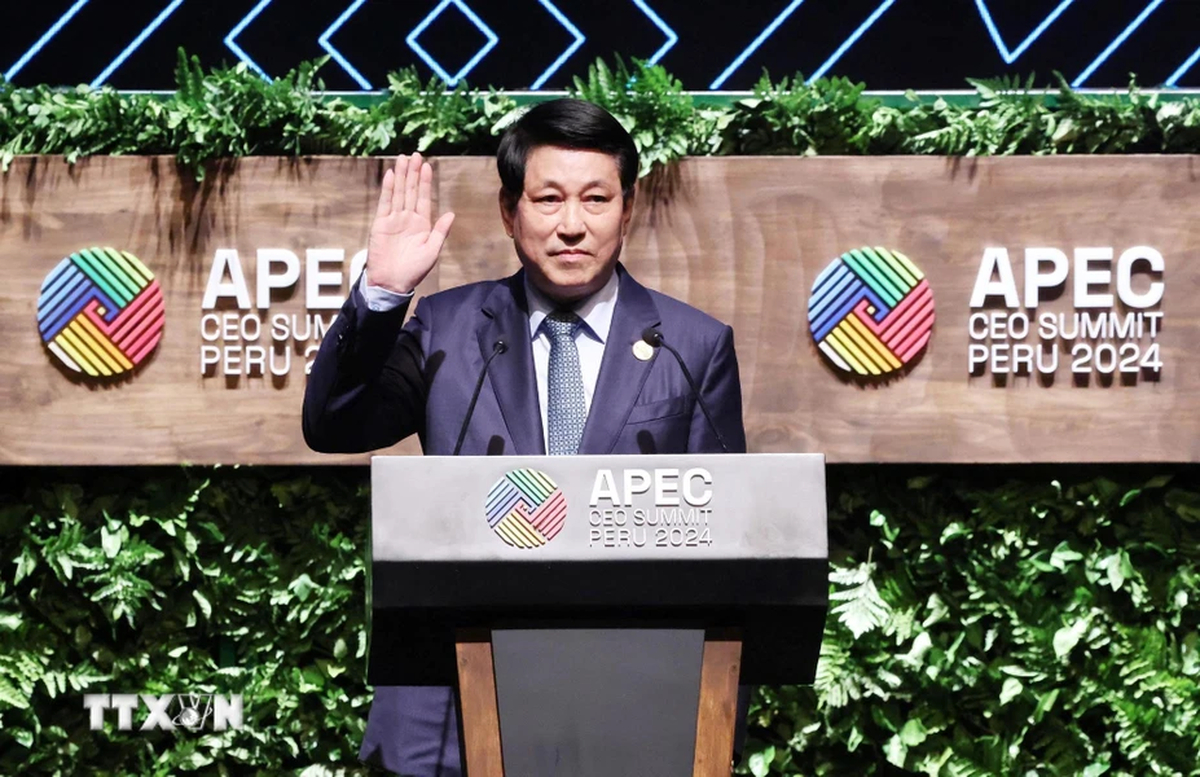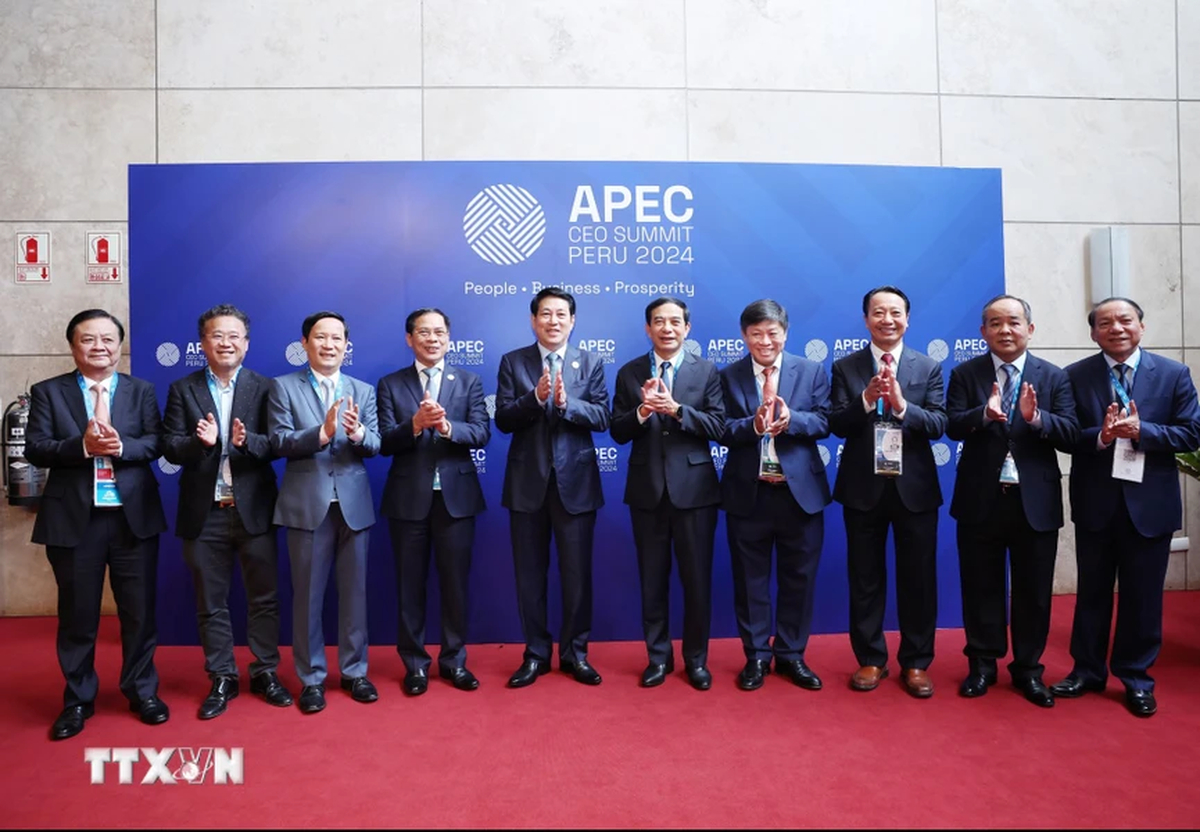Vietnamese State President Luong Cuong outlined four priority areas for Asia-Pacific Economic Cooperation (APEC) member countries to address when speaking at the APEC CEO Summit 2024 in Peru on Thursday.
He also emphasized Vietnam’s position as an attractive destination for international investors.
The summit was part of the APEC Economic Leaders’ Week slated for November 9-16 in Peru’s capital Lima.
Addressing the event, State President Cuong emphasized that the world and the Asia-Pacific region in particular are undergoing great changes that have multidimensional impacts on every nation and business.
In such a context, APEC should create an effective international economic governance system to support the growth of the member economies.
The Vietnamese leader also put forth four priorities that the member economies need to implement to achieve their common objectives.
Firstly, they should contribute to maintaining a peaceful and stable international environment that facilitates global trade and investment, as well as economic integration and connectivity.
The second priority is to ensure that every nation and individual has equal access to opportunities and can fully benefit from the outcomes of cooperation and development.
Thirdly, the member economies must develop comprehensive solutions for transitioning to clean, green energy to effectively tackle climate change impacts.
The last priority is that disruptive technologies, particularly artificial intelligence, must be developed and applied responsibly and inclusively so that they could become essential drivers of economic growth and social progress.
Highlighting the role of the APEC business community, the president said that optimism, daring to think and act, and the ability to discover and take advantage of opportunities even in difficult times are key to success.
|
|
| Vietnamese State President Luong Cuong (L, 5th) and other delegates pose for a photo at the APEC CEO Summit 2024 in Lima, Peru, November 14, 2024. Photo: Vietnam News Agency |
President Cuong called for enhancing the role and contributions of the business community, particularly in green transition, digital transformation, technological innovation, the development of global economic regulations, and fostering people-to-people exchanges among nations.
He also highlighted Vietnam's key strengths that make it an attractive destination for international businesses and investors.
He affirmed that Vietnam is entering a new era with a renewed mindset, a strong aspiration to become a prosperous and happy nation, and a firm confidence in a bright future.
“Vietnam now has an expanding and dynamic economy which ranks 35th globally; a robust and stable political system that puts people in its center; a patriotic, self-reliant, and resilient nation; a population of over 100 million; and a lot of international friends,” President Cuong said.
He affirmed that Vietnam supports a multilateral trading system and the central role of the World Trade Organization, and it believes in the value of free trade, international connectivity and integration.
Vietnam will responsibly participate in, and make positive contributions, to world politics, the global economy, and human civilization as a friend, a trustworthy partner, and an active, responsible member of the international community.
He underlined that Vietnam's strong development will open up many new opportunities for both domestic and international enterprises in the fields of trade, industry, agriculture, tourism, infrastructure, logistics, and high-tech industries.
The Vietnamese market has been offering many benefits and advantageous conditions that very few places have to international enterprises and investors, Cuong told the audience.
He shed light on the important advantages of Vietnam’s economy, including a favorable geographical location in Southeast Asia, a dynamic and highly open economy, and a broad cooperation network through 17 free trade agreements.
Vietnam also has a large, potential market and is a favorable destination for the current shift of supply chains in the region.
In addition, the Southeas Asian country has a population ranking 15th in the world, a synchronous infrastructure system, and a business environment among the most conducive in Asia.
Vietnam is transitioning from a traditional economy to a digital one, accelerating the development of strategic infrastructure, particularly in transport, energy, and digital sectors.
Like us on Facebook or follow us on Twitter to get the latest news about Vietnam!



















































